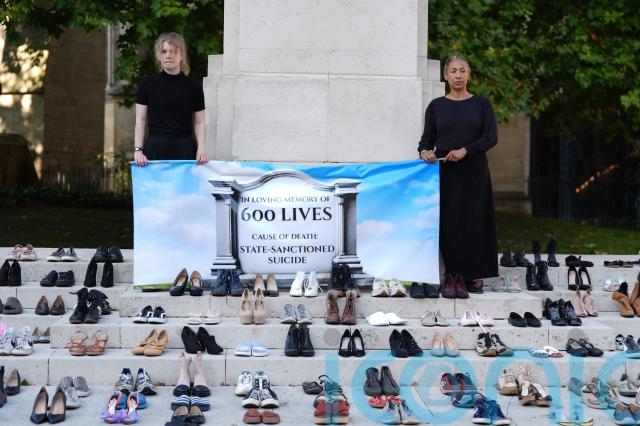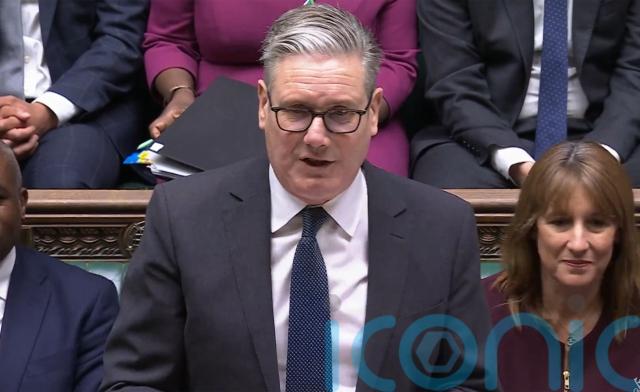
Parliament would still be debating assisted dying legislation in 2029 at the current rate, Kim Leadbeater said, as she accused peers of deploying tactics to prevent it becoming law.
Both the House of Commons and the House of Lords must agree on the final draft of the Terminally Ill Adults (End of Life) Bill before the end of this parliamentary session in spring.
MPs backed the legislation in June this year, before it was sent to the upper chamber for further scrutiny.

At the second day of committee stage on Friday, peers spent four hours and 44 minutes debating 21 amendments.
They had also taken almost five hours to discuss seven amendments on the first day of committee stage last week.
More than 1,000 amendments have been tabled in total.
Ms Leadbeater, the Labour MP behind the Bill, told the PA news agency: “If we do this, it will take us until 2029 to debate the Bill, which clearly we don’t have that much time.”
Currently, there are two further days allocated to committee stage. This could be increased by those who schedule parliamentary business.
Ms Leadbeater added: “I’ve always welcomed the scrutiny and the expertise and the experience and the knowledge that the Lords bring, but I am slightly concerned and somewhat disappointed with over 1,000 amendments.
“It feels to me as though there could be some tactics at play to try and stop the Bill proceeding within the parliamentary term.”
The Spen Valley MP said it “feels slightly undemocratic” that 23 unelected bishops and hereditary peers are “making decisions about something which the elected chamber has supported, (and) the public support by a vast majority”.
“As much as the Lords have got a very important, detailed job to do, they also have to be efficient in what they’re doing,” she added.
Lord Falconer, who is taking the Bill through the Lords, accused peers of “parliamentary shenanigans” by talking out the Bill.

The Labour former lord chancellor and justice secretary said: “The Lords will damage its own reputation.
“And, most importantly of all, we will have let down all those terminally ill people and their loved ones who are depending on Parliament to give them hope that we can remove the injustice and cruelty inherent in the current law.”
Ahead of Friday’s debate, Childline founder Dame Esther Rantzen, who is terminally ill with cancer, had warned peers not to “sabotage democracy”.
In a message recorded in conversation with her daughter, Rebecca Wilcox, the 85-year-old said: “Give us all the choice that you would want yourself. And then we can die in dignity, pain-free, and leave our families and our loved ones with happy memories. That’s all we ask.”
In the chamber, former Cabinet minister Baroness Therese Coffey said she would not be “bullied” into silence and argued she was using the parliamentary process to raise her “concerns”.
The Tory peer had tabled more than 60 amendments to the Bill.

Baroness Butler-Sloss, a former High Court judge, also rebutted claims of time-wasting.
“There are many of us who don’t like the Bill, but there is a real probability the Bill will pass,” the crossbench peer said.
“And if the Bill passes, we want it better than it is at the moment. Consequently, we are not wasting time.”
Meanwhile, Liberal Democrat Lord Goddard of Stockport said it would be peers’ “fault” if the Bill were to run out of time.
Prime Minister Sir Keir Starmer had faced questions about the Lords’ conduct earlier this week.
Conservative former minister Kit Malthouse at Prime Minister’s Questions shared his fear that “technical or procedural manoeuvres” might be used to prevent Parliament from reaching a decision.
“Scrutiny of the Bill in the Lords is a matter for the Lords, but the Government does have a responsibility to make sure that any legislation which passes through Parliament is workable, is effective and, of course, enforceable,” Sir Keir replied.
He had earlier said: “The Government is neutral on the passage of the Bill.
“It is a matter of conscience, and there are different and respected views across Parliament, and it is for Parliament to decide at the end on any changes in this chamber.”
Subscribe or register today to discover more from DonegalLive.ie
Buy the e-paper of the Donegal Democrat, Donegal People's Press, Donegal Post and Inish Times here for instant access to Donegal's premier news titles.
Keep up with the latest news from Donegal with our daily newsletter featuring the most important stories of the day delivered to your inbox every evening at 5pm.